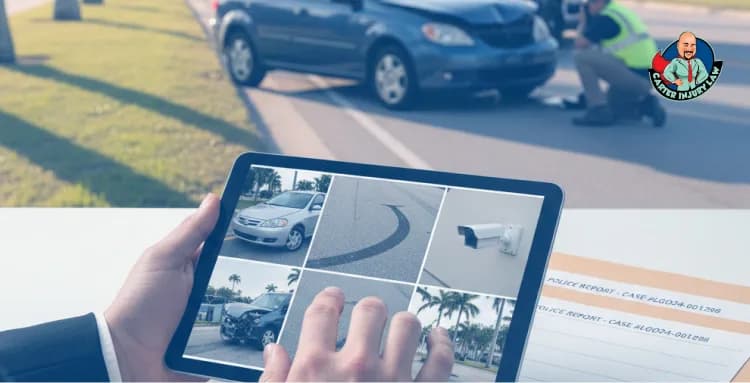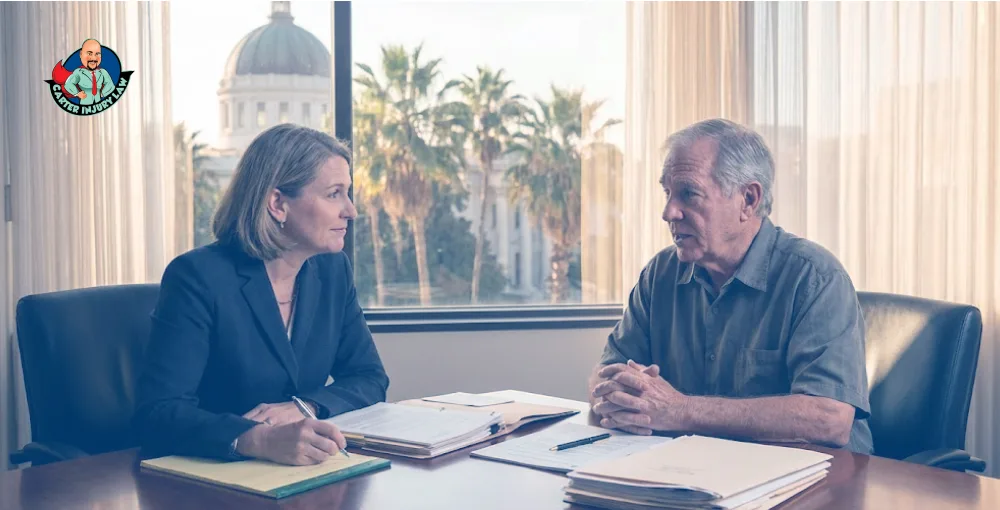There’s a strange kind of silence that settles in when your lawyer stops calling you back. You wait. You wonder. You tell yourself maybe they’re just busy. But eventually, that silence turns into doubt. Are they doing anything? Do they care? Shouldn’t I feel something more than ignored in my own case?
Most people don’t plan for this moment but it happens. More often than you think. And when it does, there’s one question that slowly rises above the noise.
Can I really change my lawyer? Let’s talk about that. But first, something you should know…
1) Yes, You Can Change Your Attorney in Florida And Here’s Why
In Florida, the law gives clients the right to discharge their attorney at any time, with or without cause. You don’t need to wait for a milestone in your case, and you don’t need to justify your decision to anyone. If something doesn’t feel right, whether it’s communication, trust, or just a disconnect, you have the freedom to explore a better fit.
The Florida Bar actually addresses this directly in their Consumer Guide to Hiring a Lawyer. They explain that a client may end the relationship at any time, although the discharged lawyer may have a right to compensation for the work already performed.
You’ve got one case and one shot at getting it right. So if you’re starting to question whether your current representation is serving your best interest, it’s okay to pause and ask what’s next.
2) The #1 Reason People Switch Lawyers? Communication Breakdown
It’s not always about the outcome. More often, it’s about the silence. One of the most common reasons clients decide to change lawyers is simple—they’re not hearing back. They’re left wondering what’s going on with their case, and they’re tired of chasing down answers.
In fact, the American Bar Association has reported that over half of all complaints against attorneys have to do with poor communication. Not malpractice. Not billing issues. Just a lack of response, updates, or clarity. And that tells you something.
Of course, it’s not always just about phone calls or emails. Sometimes the issue runs deeper. Maybe there’s a disagreement about strategy. Other times, it’s professionalism. Missed deadlines, short tempers, or a general sense that things aren’t being handled the way they should.
And sometimes… people just don’t click. That’s okay, too. This is a working relationship, and trust is everything. If it’s not there, no one benefits—not you, and not your case.
3) What If Your Case Is Already in Litigation?
Now, if your case has already made it to court, switching lawyers is still very possible but there’s just a bit more to it.
Litigation doesn’t lock you in. What it does is add a few extra steps. At that stage, your attorney has likely filed documents on your behalf, maybe even appeared in court. So changing counsel means officially letting the court know that someone new is stepping in.
In Florida, this is handled through what’s called a Substitution of Counsel, and it’s all governed by the Florida Rules of Civil Procedure. It’s a formal process, but it’s nothing to stress over. Most of the time, your new attorney handles it for you, from notifying the court to coordinating with your previous lawyer.
4) What Happens to Fees If You Switch Lawyers?
One of the first questions people ask when thinking about switching attorneys is, “Will it cost me more?” And I get it, that’s a fair concern.
However, in most personal injury cases, the answer is no. You're likely working under what's called a contingency fee agreement, which simply means your attorney only gets paid if and when you win a settlement. You’re not paying anything out-of-pocket along the way.
So if you decide to change lawyers, you’re not stacking up two fees. The fee is usually a set percentage of your settlement that is split between your previous and new lawyers. It doesn’t come out twice. It just gets divided based on who did what and when.
Now, there are some cases where the outgoing attorney may claim a lien, basically a right to payment for the time they already spent working on your case. That’s not unusual. The amount depends on the hours logged or the value of the work done. But even then, it’s handled between the lawyers. You’re not stuck in the middle of a fee dispute.
5) When to Get a Second Opinion Without the Guilt
We do it with doctors. We do it with mechanics. So why not with lawyers? Getting a second opinion on your case doesn’t mean you’re being difficult or disloyal. It just means you’re being thoughtful and when it comes to something as personal and life-altering as a legal claim, that’s exactly what you should be.
There’s no rule that says you have to stick with the first lawyer you hired. And just because you’re asking questions doesn’t mean you’re burning bridges. You’re allowed to explore your options. In fact, you should, especially if something feels off.
Now of course, we always keep things professional and ethical. If you reach out to us while you’re still represented by another attorney, we’ll make sure everything’s handled the right way. No backdoor moves, no pressure. Just an honest conversation about where your case stands—and what could come next if you decide to make a change. Here's a more straightforward explanation of how the process works.
6) How to Switch? A Simple Step-by-Step by Carter Injury Law
If you’ve made the decision to move forward with a new attorney, here’s what the process actually looks like. It’s simpler than most people expect and we make sure it stays that way.
Review your current agreement
Just take a look at the paperwork you signed with your current lawyer. We’re mainly looking at the fee arrangement and any language about ending the relationship. If you’re not sure what you’re reading, don’t worry, we’ll help you break it down.Contact a new attorney (like us)
This is the moment where you take back control. We’ll talk through where your case stands, what’s been done so far, and whether switching makes sense for you. If it does, we’ll move forward—no pressure, no rush.We’ll handle the transition paperwork
Once you give the go-ahead, we’ll send formal notice to your previous attorney, notify the court (if your case is in litigation), and file the necessary documents. You won’t be stuck making awkward calls or chasing anyone down.
And that’s it. We take care of the details so you don’t have to. You focus on healing, on moving forward. We’ll make sure the handoff happens smoothly and that your case doesn’t miss a beat.
If you’re standing at that crossroads, unsure whether to stay or move on, you don’t have to figure it out alone.
Call Carter Injury Law at 813-922-0228 or visit Carterinjurylaw.com












